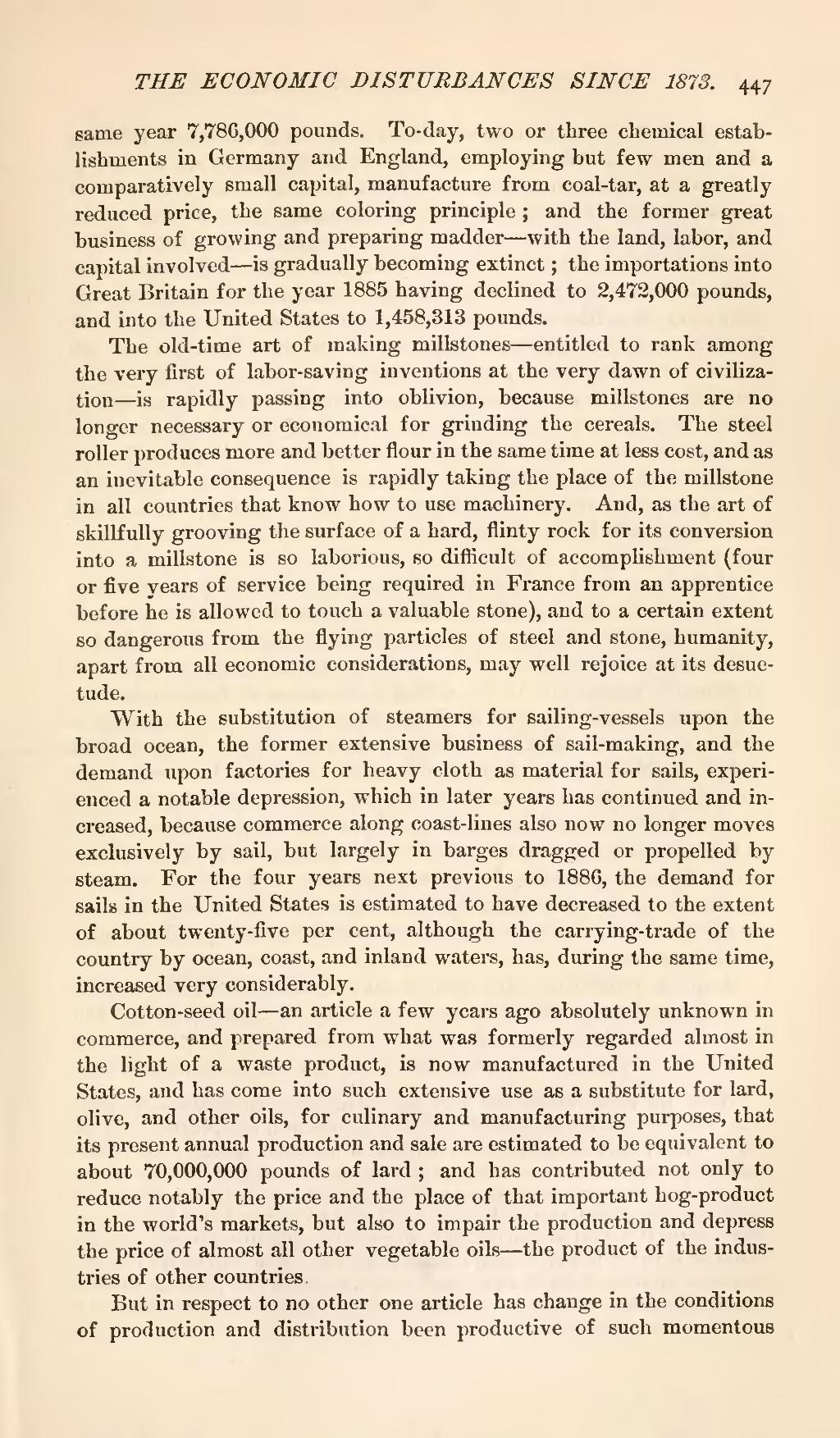same year 7,780,000 pounds. To-day, two or three chemical establishments in Germany and England, employing but few men and a comparatively small capital, manufacture from coal-tar, at a greatly reduced price, the same coloring principle; and the former great business of growing and preparing madder with the land, labor, and capital involved is gradually becoming extinct; the importations into Great Britain for the year 1885 having declined to 2,472,000 pounds, and into the United States to 1,458,313 pounds.
The old-time art of making millstones—entitled to rank among the very first of labor-saving inventions at the very dawn of civilization—is rapidly passing into oblivion, because millstones are no longer necessary or economical for grinding the cereals. The steel roller produces more and better flour in the same time at less cost, and as an inevitable consequence is rapidly taking the place of the millstone in all countries that know how to use machinery. And, as the art of skillfully grooving the surface of a hard, flinty rock for its conversion into a millstone is so laborious, so difficult of accomplishment (four or five years of service being required in France from an apprentice before he is allowed to touch a valuable stone), and to a certain extent so dangerous from the flying particles of steel and stone, humanity, apart from all economic considerations, may well rejoice at its desuetude.
With the substitution of steamers for sailing-vessels upon the broad ocean, the former extensive business of sail-making, and the demand upon factories for heavy cloth as material for sails, experienced a notable depression, which in later years has continued and increased, because commerce along coast-lines also now no longer moves exclusively by sail, but largely in barges dragged or propelled by steam. For the four years next previous to 1886, the demand for sails in the United States is estimated to have decreased to the extent of about twenty-five per cent, although the carrying-trade of the country by ocean, coast, and inland waters, has, during the same time, increased very considerably.
Cotton-seed oil—an article a few years ago absolutely unknown in commerce, and prepared from what was formerly regarded almost in the light of a waste product, is now manufactured in the United States, and has come into such extensive use as a substitute for lard, olive, and other oils, for culinary and manufacturing purposes, that its present annual production and sale are estimated to be equivalent to about 70,000,000 pounds of lard; and has contributed not only to reduce notably the price and the place of that important hog-product in the world's markets, but also to impair the production and depress the price of almost all other vegetable oils—the product of the industries of other countries,
But in respect to no other one article has change in the conditions of production and distribution been productive of such momentous

